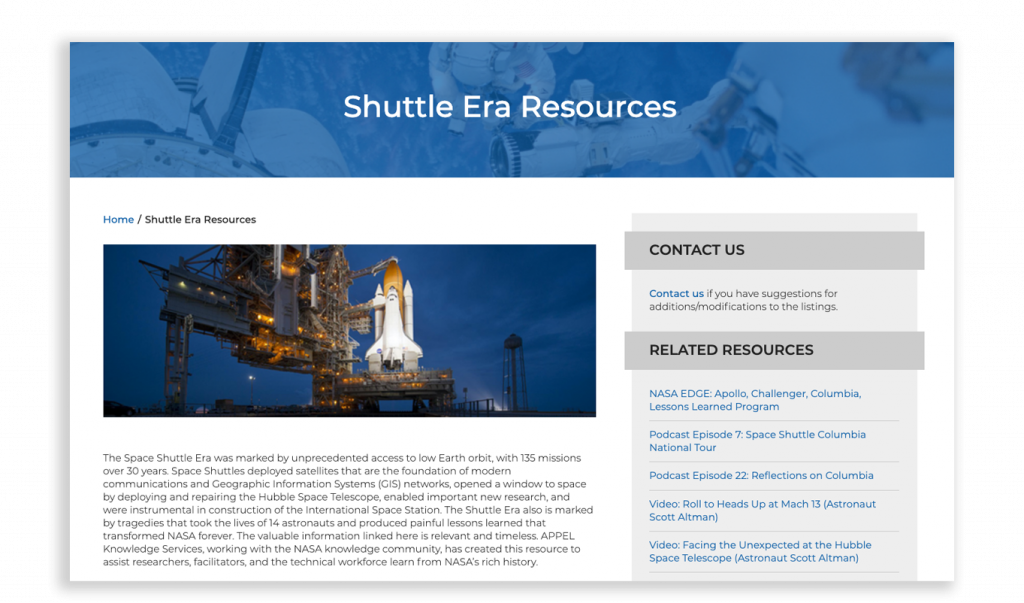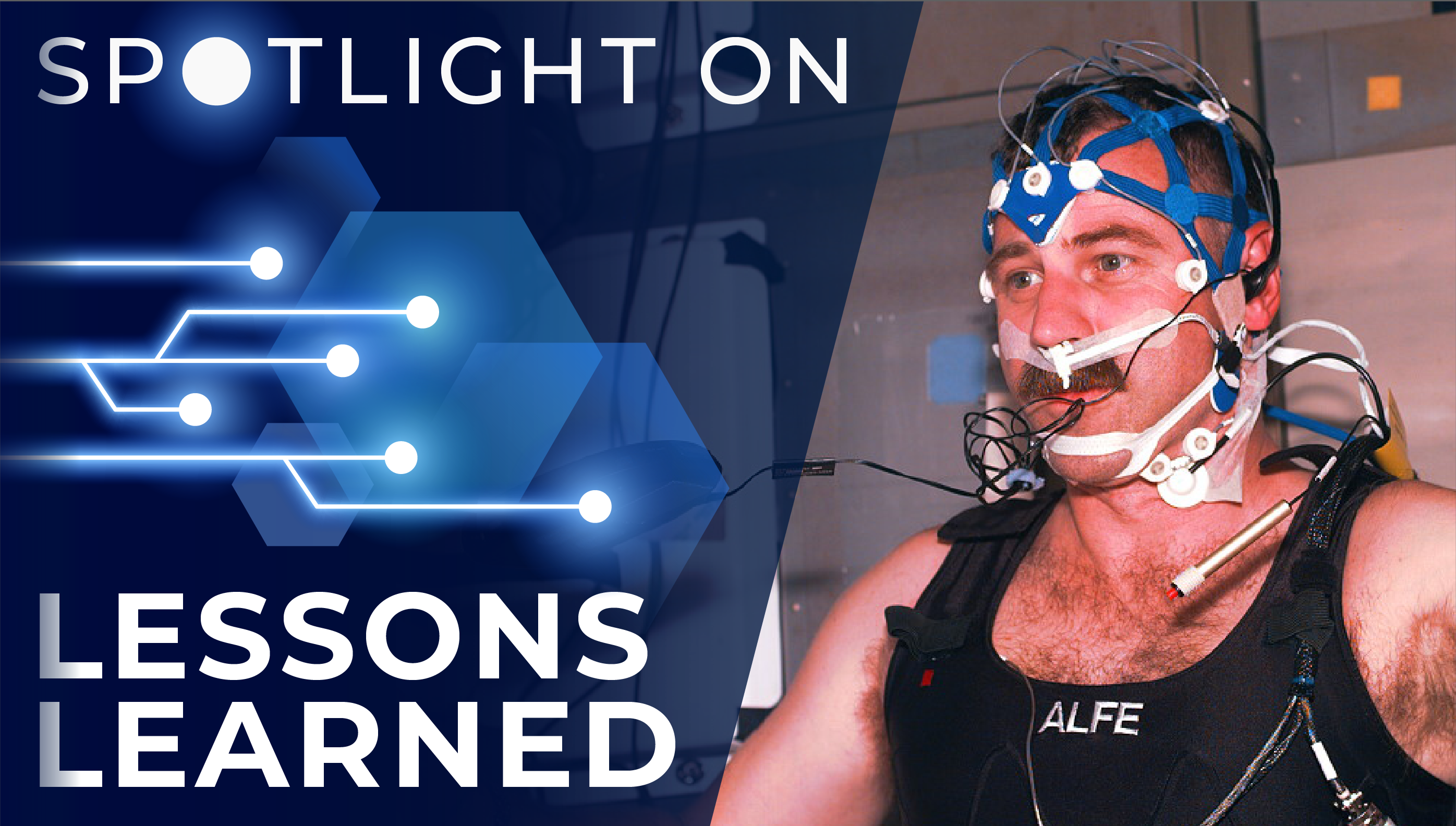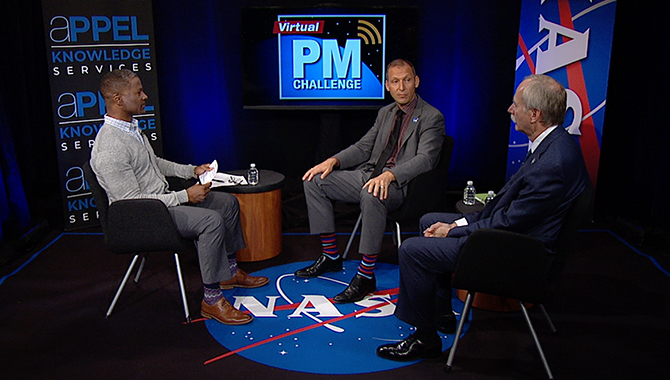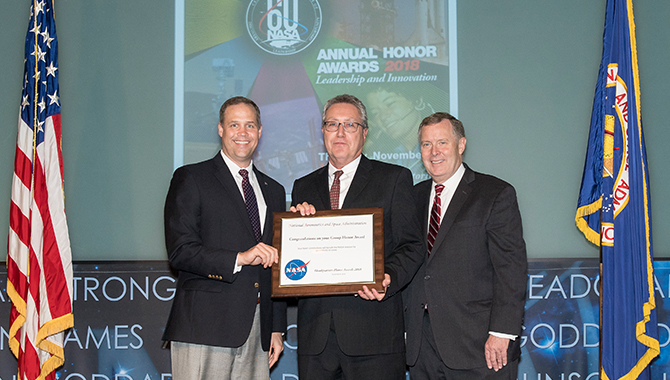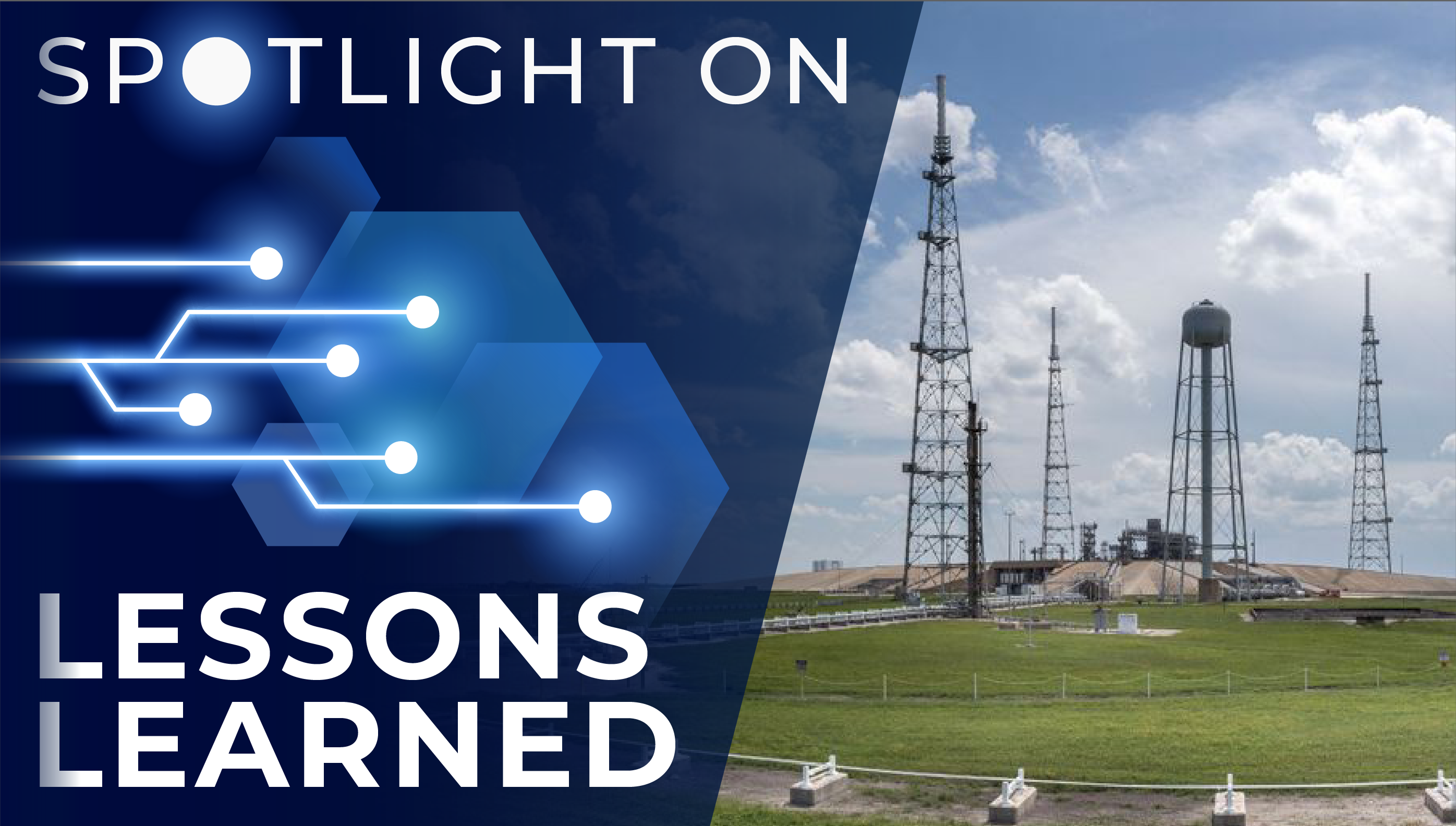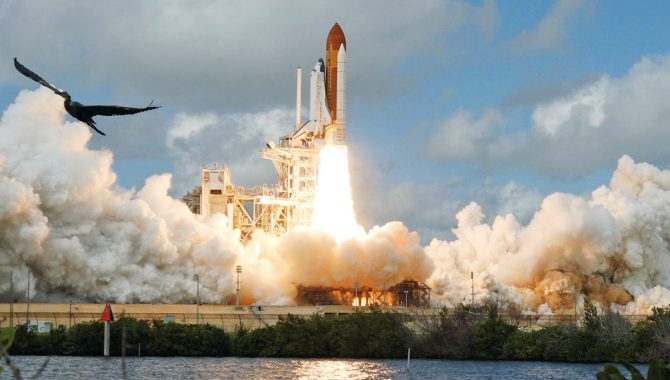
APPEL’s new Space Shuttle Resources page contains links to hundreds to key documents, videos, photos, and more about the Space Shuttle Program and the lessons learned for today’s technical workforce. Here, Space Shuttle Discovery launches on STS-120 to the International Space Station.
Credit: NASA
Web page links to hundreds of documents that detail the triumphs and tragedies of the Shuttle Program.
The Space Shuttle Era was filled with defining moments for NASA. Over three decades—from the April 12, 1981 launch of Columbia to the July 21, 2011 landing of Atlantis—the Space Shuttle fleet flew 135 missions. These missions saved the Hubble Space Telescope, set the stage for development of the International Space Station and then supported construction of it, and contained spacelabs that fostered international scientific discoveries.
The Space Shuttle Program rewrote what was possible in space, from the first untethered spacewalk, to the first crew of six astronauts, the first three-person spacewalk, and the first time 10 humans were in space together in a single spacecraft when STS-71 and Soyuz TM-21 docked at the Russian Mir space station in the summer of 1995.
The Shuttle Era is also remembered for the two tragedies that took the lives of 14 astronauts and produced the painful lessons learned about culture and decision making that transformed NASA forever.
APPEL Knowledge Services—working with NASA’s chief knowledge officers and the knowledge community—has developed an important new resource to help NASA’s technical workforce understand and learn from the Space Shuttle Era as they work to advance Artemis.
“When people think of NASA, they think of two things: landing on the Moon and the Space Shuttle. These were the signature programs that define us as an agency,” said Roger Forsgren, NASA’s Chief Knowledge Officer and Director of APPEL. “Now, we have a new generation of employees who are developing the signature program of the future, Artemis—the return to the Moon and the journey to Mars. Our hope is that our agency can learn from the past, from Apollo and Shuttle, while we move into the future.”
This new webpage on the APPEL KS website contains links to hundreds of reports, research papers, images, and more. The information is divided into four categories: Articles and Publications, Case Studies, Lessons Learned, and Videos and Images. APPEL KS developed a similar page focusing on Apollo Era Resources in June.
“We had a lot of interest in our Apollo Era Resources page, so it just made sense to build upon that with a similar effort involving the Shuttle,” Forsgren explained. “Very few Apollo-era employees are left at our agency but there’s a lot of NASA folks still around who supported Shuttle and it’s a lot easier to gather this kind of information for a resource page from the very people who used to be part of the Shuttle Program.”
The information linked to on the Shuttle Era Resources page includes oral histories from key members of the Shuttle program, more than 3,400 technical papers mentioning the Shuttle, an extensive Q&A about technical and general aspects of the Shuttles, a thorough collection of fact sheets, and much more. Many of the resources in the Lessons Learned section offer insight into the Challenger and Columbia tragedies and the steps NASA took to improve safety.
“If Apollo and Shuttle defined us as an agency, then the Challenger and Columbia tragedies matured us as a workforce,” Forsgren said. “NASA embarked on an incredible change of culture to make sure the mistakes of the past wouldn’t happen again. Implementing Technical Authority and dissenting opinion, developing diverse teams where diverse opinions resonate, those are the lessons learned from the Shuttle era that will help Artemis to become a success.”
The new Shuttle Era Resources page, and the Apollo Era Resources page before it, fit into the goal of developing APPEL KS’s website into a one-stop-shop for NASA’s technical workforce. The new pages join APPEL’s Knowledge Inventory, Small Steps, Giant Leaps podcast, training courses, career resources, Virtual Project Management Challenge, SELP program, and INSIGHT online magazine, as important resources for NASA’s technical workforce as they advance their projects and build their skillsets.
“Our goal was to develop a website that NASA employees would, not just gravitate to, but look forward to logging on in order to learn something new,” Forsgren said. “I think our APPEL KS team has accomplished that goal. We average more than 22,000 hits per month! We are very selective about the material we post because we know NASA employees are very busy and they need to find critical knowledge quickly. I feel confident that the Shuttle Resource page will accomplish that.”






